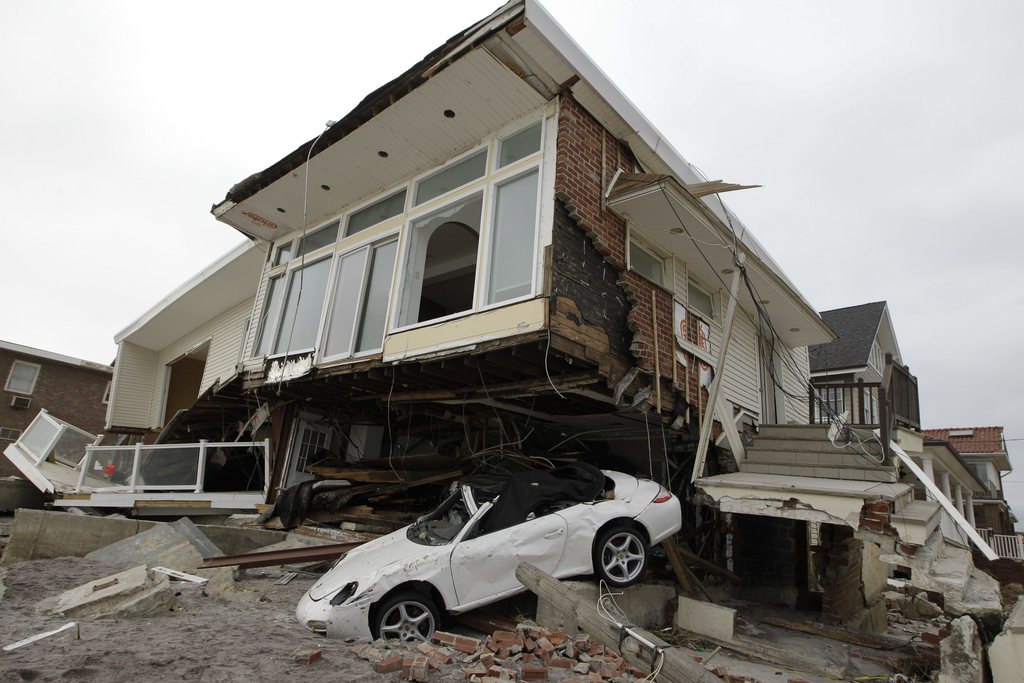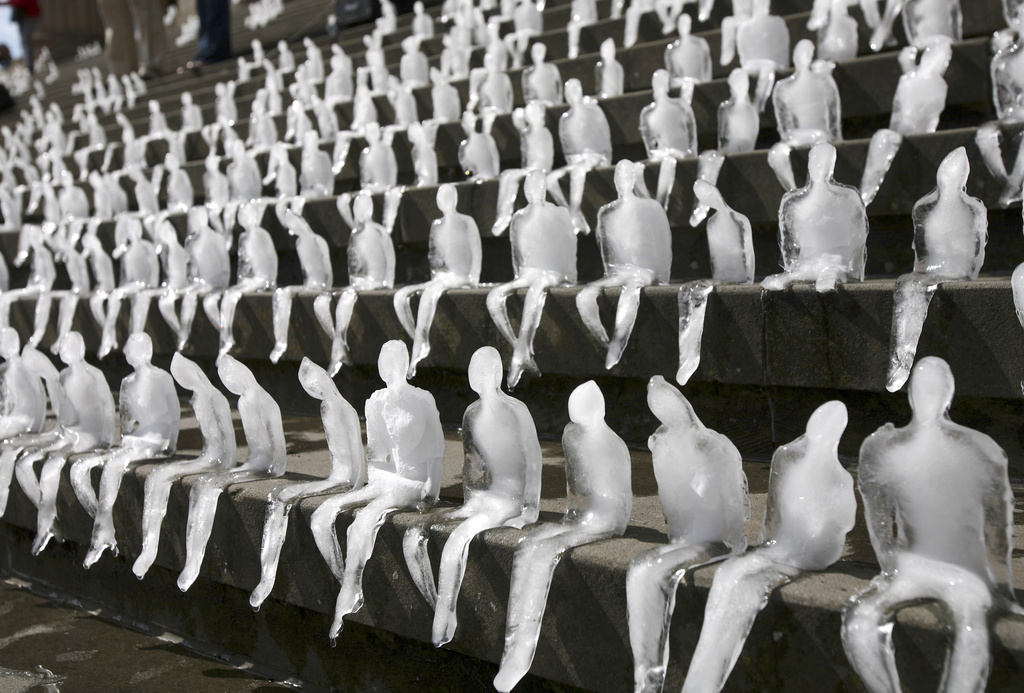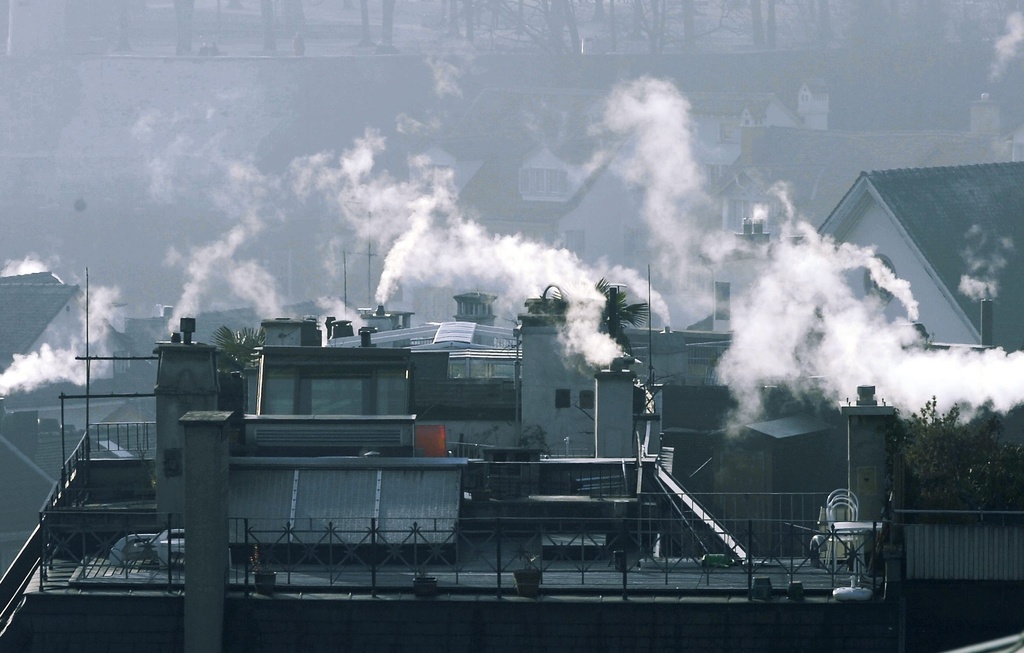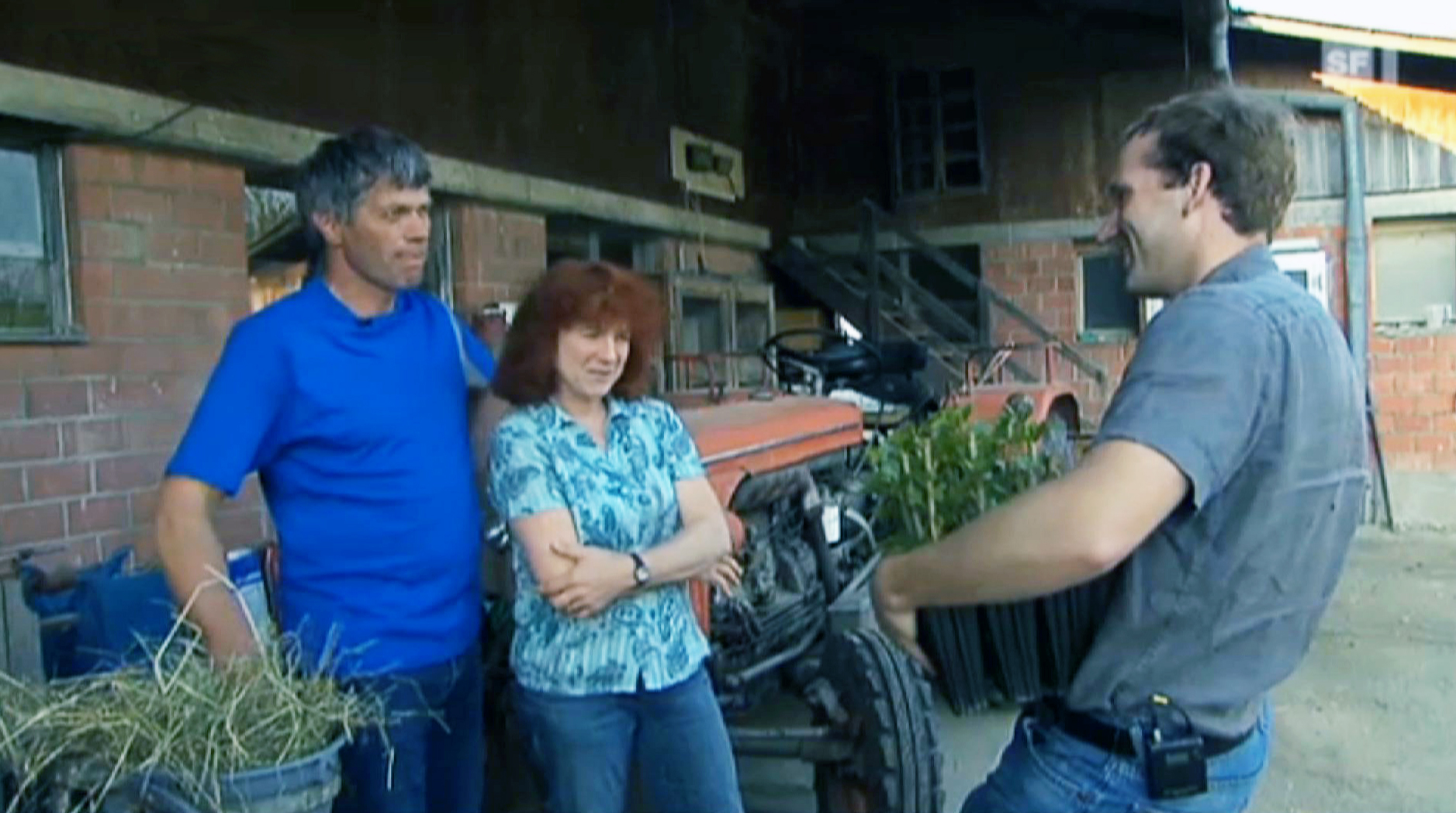Swiss urged to play pioneering climate role

As the latest United Nations climate change conference gets underway in Qatar, the government’s advisory body on the issue says Switzerland should adopt a more ambitious strategy rather than align itself with the European Union.
Switzerland, one of almost 200 nations aiming to defy the odds at a two-week conference in Doha and make progress on a new climate change deal, says it is prepared to reduce emissions further – if other countries do the same.
“Switzerland supports the assumption of reduction commitments by all states based on their share of climate gas emissions and their economic power,” the environment office said in a statement.
Fifteen years ago, fears about man-made climate change were enough to bind most of the industrialised world into a treaty that was flawed but at least seemed to cement the principle that greenhouse gases must be cut.
Yet now – with levels of those gases much higher and climate change helping influence if not cause extreme weather events such as last month’s “superstorm” Sandy – economic slowdown and arguments over who should pay have all but killed any chance of a meaningful extension to the expiring Kyoto Protocol.
Russia, Japan and Canada – major economies that signed in 1997 – have already said they will not sign up to emissions cuts beyond December 31.
Swiss support
For its part, the Swiss delegation, in accordance with the mandate handed to it from the cabinet last week, will vote in favour of a second commitment period for the Kyoto Protocol.
The environment office pointed out, however, that this is subject to certain conditions: the other states – both industrialised and developing – must strengthen their commitment to the climate regime from 2020 and make serious efforts to promote the measures decided on in 2011 in Durban.
“Switzerland is prepared to reduce its CO2 emissions by 20 per cent as compared with 1990. If the other industrialised countries agree to comparable reduction targets and developing countries also undertake to implement substantial reduction measures, Switzerland would be prepared to reduce its emissions by up to 30 per cent.”
“Pioneering role”
The 23-member Swiss contingent flying the 4,500 kilometres from Bern to the Qatari capital includes politicians, scientists, businesspeople and representatives of development and environmental organisations.
Also attending will be several members of the government’s advisory body for climate change (OCCC), which on Friday presented its “political vision” for Swiss climate targets and emission reduction.
It recommended that “since Switzerland can overcome the challenges of protecting the climate better than other countries”, the alpine nation should aim for a reduction in carbon dioxide of 80 per cent on 1990 levels by 2050.
After that, the country should aim to be totally carbon dioxide neutral, i.e. producing no CO2, said OCCC’s president Kathy Riklin, who called on the government to “be brave and play a pioneering role”.
The scientists and economists of OCCC said this “zero vision” was feasible – even if mentalities and behaviour would need to change profoundly. Were this achieved, they reckoned on an economic hit “in the modest range of 0.36-2.5 per cent”.
Riklin said in order to gain support for an ambitious climate policy, it was necessary to highlight who would be affected by change.
“If no decisions are taken, there will be many losers. Only a few people benefit from the status quo,” she said, pointing out that Switzerland would be affected not only directly – by increased flooding, for example – but also indirectly, by changes in demands for exports or by increased immigration applications.
“Death sentence”
Andreas Fischlin, head of Zurich University’s terrestrial systems ecology group and coordinating lead author of one of the chapters in the 2007 report of the UN Intergovernmental Panel on Climate Change (IPCC), summed up the main point he would be making in Doha.
“It’s simple: the door to two degrees is closing fast!” he told swissinfo.ch, referring to the stated goal of the UN to keep the temperature rise below two degrees Celsius compared with pre-industrial levels.
“One of the reasons why it’s difficult to reach agreement is that a large number of countries want a lower target; they want to keep warming below 1.5 degrees. They don’t want to sign a death sentence – those were the words those delegates used.”
Fischlin, also a member of OCCC, said he was always optimistic because the targets were still achievable – “but it requires more and more effort with every year in which we fail to set very clear signals: we have to get rid of CO2 emissions totally”.
As for the greatest hurdles, he cited a lack of political will and “a lot of misconceptions”, notably costs and fears about a change of lifestyle.
“But I’m convinced that if people thought more often about the actual gains they could get out of [changing their way of life] and how much fun it can be to do new things, a lot of people would find that we still have a possibility.”
Green groups
Environmental organisation WWF Switzerland, which will be represented in Doha, wants to see “a clear roadmap for a fair, binding and ambitious agreement”, which it wants to then be signed within three years.
The Swiss Climate Alliance, of which the WWF is a member, fears political scheming will once again frustrate such ambition.
It is the task of Switzerland, it said in a statement, to counter this by setting a good example: through more climate protection at home and a greater contribution towards climate protection in developing countries. Both are opportunities for the economy and the cleantech industry in Switzerland, it added.
For this reason, the Climate Alliance is demanding that Switzerland improve its “previously insufficient” offer regarding emission reduction and climate financing.
“An ambitious climate policy will pay for itself in the medium term not only for the world but also for Switzerland,” it said.
As a signatory to the Kyoto Protocol, Switzerland committed itself to reducing greenhouse gas emissions.
For the 2008-2012 period CO2 emissions must be cut by 8% compared with 1990 levels – that is 4.2 million tons annually.
Consolidated data will only be available in 2014, but Switzerland is not even likely to achieve a 50% emission reduction with domestic measures.
In 2008 Switzerland introduced a tax on CO2 tax on gas and heating oil. It amounts to a duty of SFr0.09 per litre.
To prevent the tax the business community agreed a deal with the government on a petrol charge of SFr0.015 per litre. The proceeds of the tax go towards the industry’s Climate Centime Foundation.
The organisation finances projects in Switzerland and abroad aimed at reducing the output of greenhouse gases.

In compliance with the JTI standards
More: SWI swissinfo.ch certified by the Journalism Trust Initiative







You can find an overview of ongoing debates with our journalists here. Please join us!
If you want to start a conversation about a topic raised in this article or want to report factual errors, email us at english@swissinfo.ch.